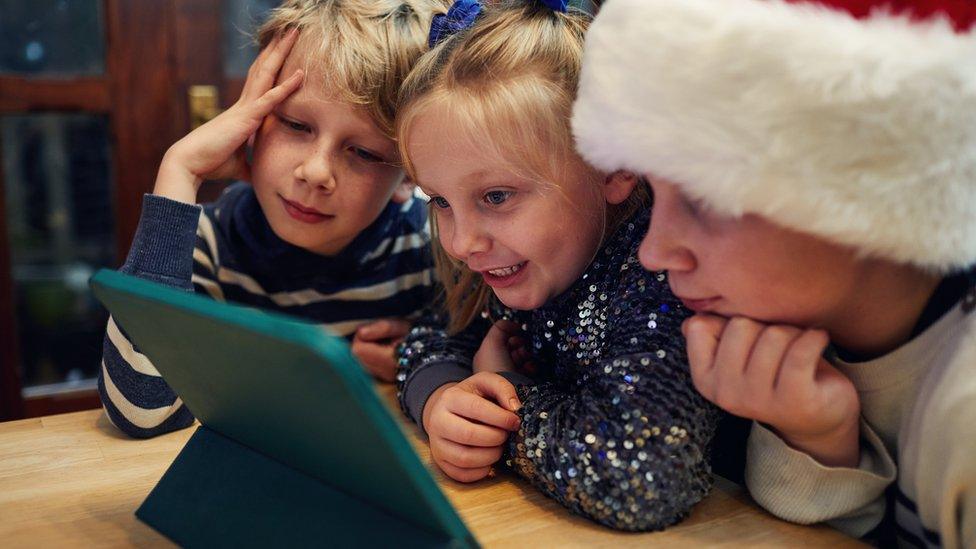Christmas lockdown rules: Everything you need to know
- Published
- comments
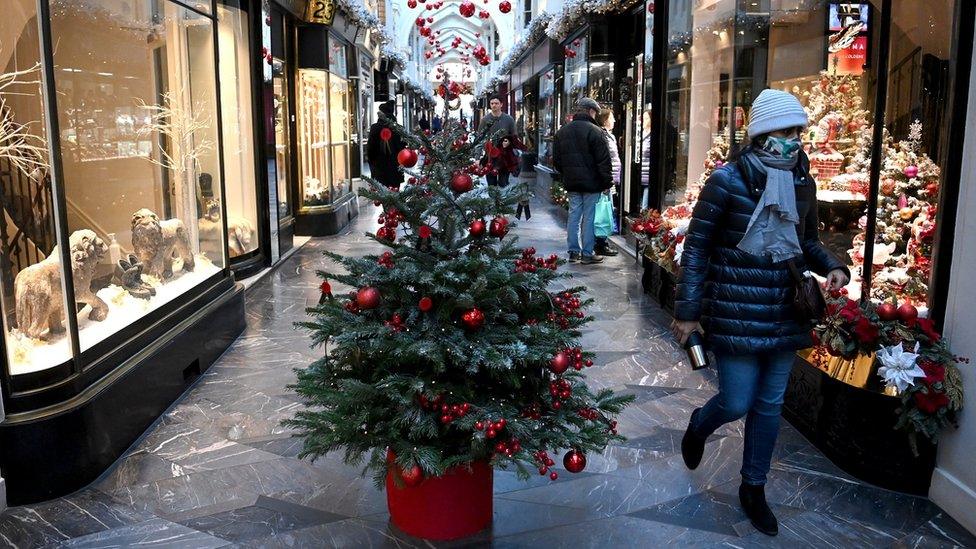
With just a few days until Christmas there have been big changes to the coronavirus rules across the UK.
The planned relaxation of Covid-19 rules in England, Scotland, Wales and Northern Ireland has been cut from five days to just one.
However, in some areas rules have become even stricter, with London, large parts of the south-east and east of England, and all of Wales going into a new set of restrictions known as Tier Four.
Scotland will enter the tightest restrictions, known as Level Four, on Boxing Day; while Northern Ireland will begin a new six-week lockdown on Boxing Day (26 December).
What are the Tier 4 restrictions?
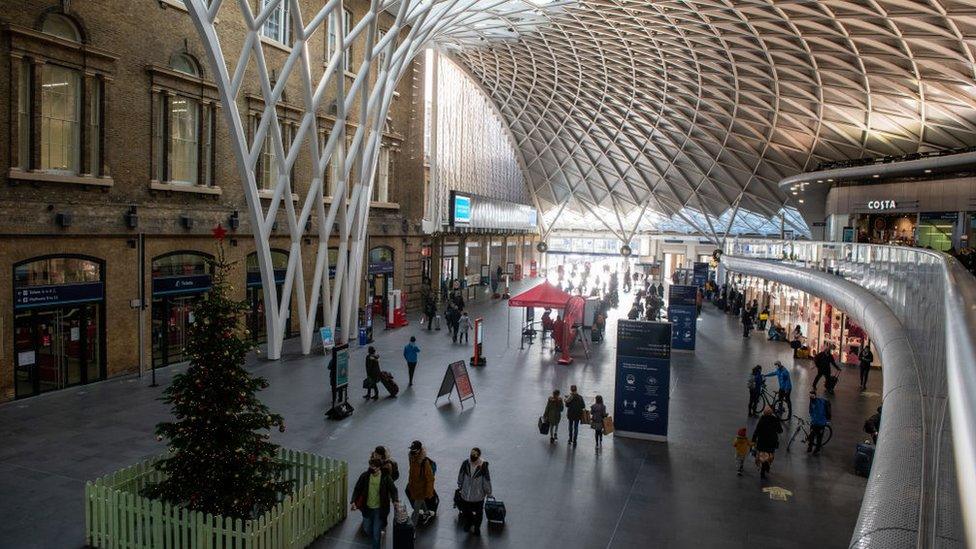
The restrictions are similar to the last national lockdown in England, in November, and began on Sunday 20 September.
They will be in place for an initial two-week period, being formally reviewed on 30 December.
People living in Tier Four areas being asked to stay at home - although those who have to travel for education or work may continue to do so
Schools are currently scheduled to reopen as normal after the holidays
People cannot mix indoors with anyone not from their household (including on Christmas Day)
Support bubbles remain unaffected, and children whose parents live in different households will still be able to visit both
You can only meet one other person from outside your household or support bubble in an open public space
All non-essential shops will have to close, along with hairdressers, nail bars, and indoor entertainment venues
Gyms and indoor swimming pools must close but outdoor pools, sports courts and golf courses can stay open
No-one in Tier Four should travel to an area in Tiers One to Three, including for Christmas
People in Tier Four areas should not travel abroad, except in limited circumstances (including work and education)
Communal religious worship will still be allowed
Weddings and civil partnership ceremonies are not allowed except in exceptional circumstances
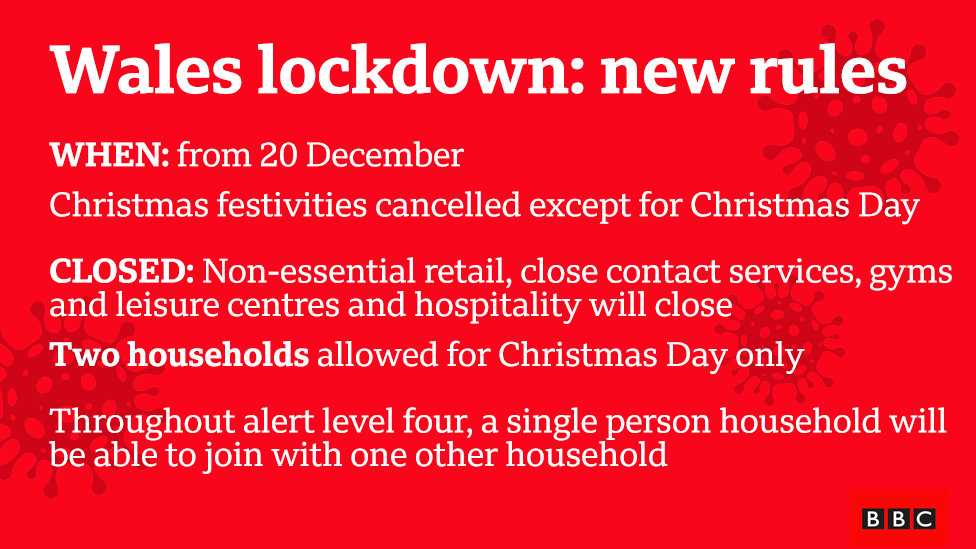
All of Wales has been moved to Tier Four immediately.
First Minister Mark Drakeford said: "While we all want to avoid further disruption to businesses and plans for Christmas, our overriding duty is to protect lives here in Wales."
The Welsh government has not set a deadline for the lifting of restrictions.
So what are the Christmas restrictions around the UK?
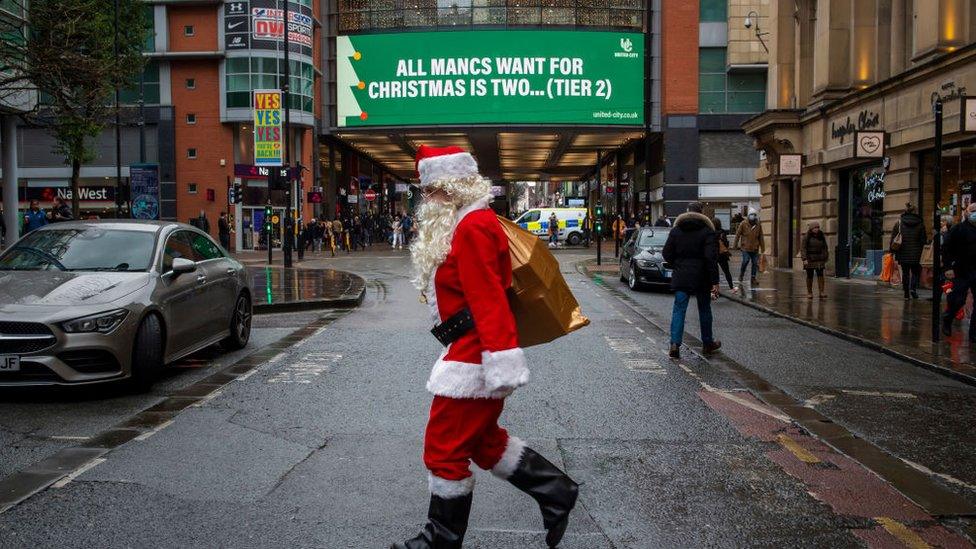
Manchester is currently subject to Tier Three measures
England:
The rules on households mixing are no longer being relaxed between 23 and 27 December, it will now be just for 25 December.
People living in Tiers 1-3 are still allowed to form Christmas bubbles with another household - but only on Christmas Day, and these cannot include anyone in Tier Four.
Wales
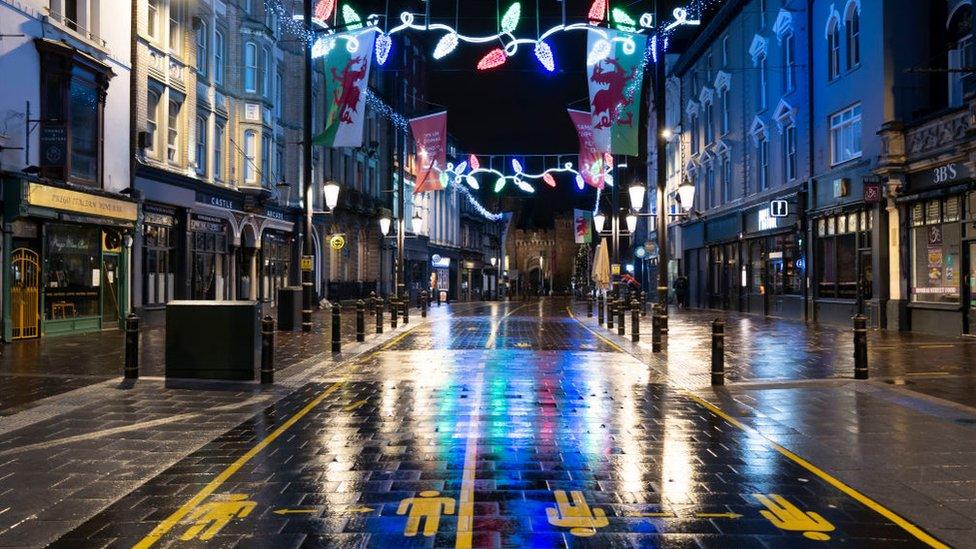
On Christmas Day two households can meet, along with a single person support bubble. The government is advising against forming a bubble at all.
From 20 December the whole country will return to lockdown under level four restrictions.
Scotland
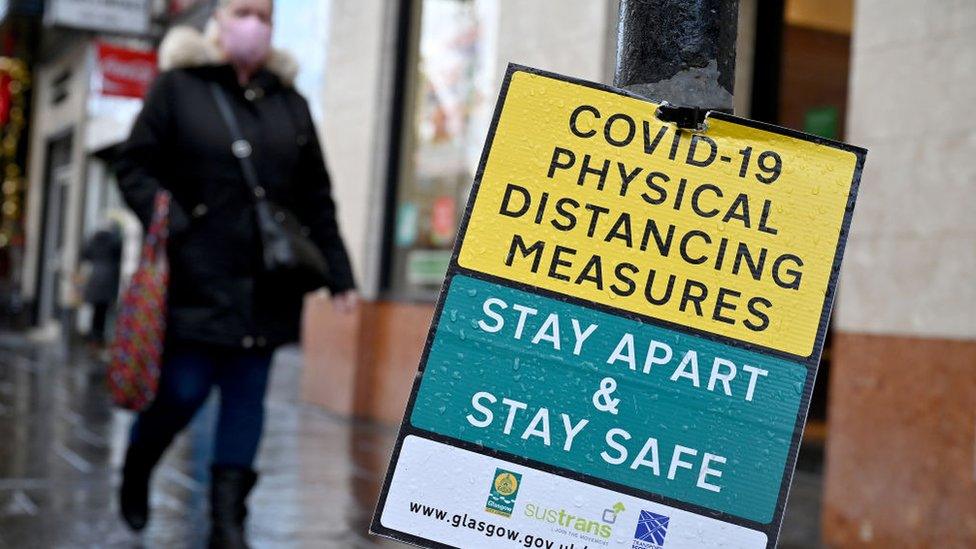
On Christmas Day a maximum of eight people from three households will be allowed to mix indoors.
From Boxing Day the whole of mainland Scotland will be in the country's toughest level of restrictions for at least three weeks.
People should not be meeting in each others houses, but those living alone can form an extended household with another household
Six adults from two separate households can meet in a public place. Children under 12 do not count towards that total
Young people aged between 12 and 17 can meet up in groups of up to six outdoors. These groups are not subject to the two household limit but physical distancing is required
Schools, colleges and universities can remain open, but informal childcare is only allowed for anyone employed in essential or permitted services.
People in Scotland should not travel to other parts of the UK, and no one who doesn't live in Scotland should travel there
All non-essential shops, leisure and entertainment venues, and indoor sports facilities (including gyms) must close
You are permitted to meet others outdoors for informal exercise or sport and outdoor gyms can remain open. Outdoor non-contact sports are permitted for all age groups.
Restaurants, cafes, pubs and bars will be closed, but hotels and other accommodation providers can serve food up to 10pm to guests.
Takeaways can operate as normal with face coverings and physical distancing rules being followed
Wedding ceremonies and civil partnerships, with a maximum of 20 people (including the couple) are allowed
Churches, mosques, temples and synagogues can remain open subject to two metre distancing and a maximum of 20 worshippers.
Northern Ireland
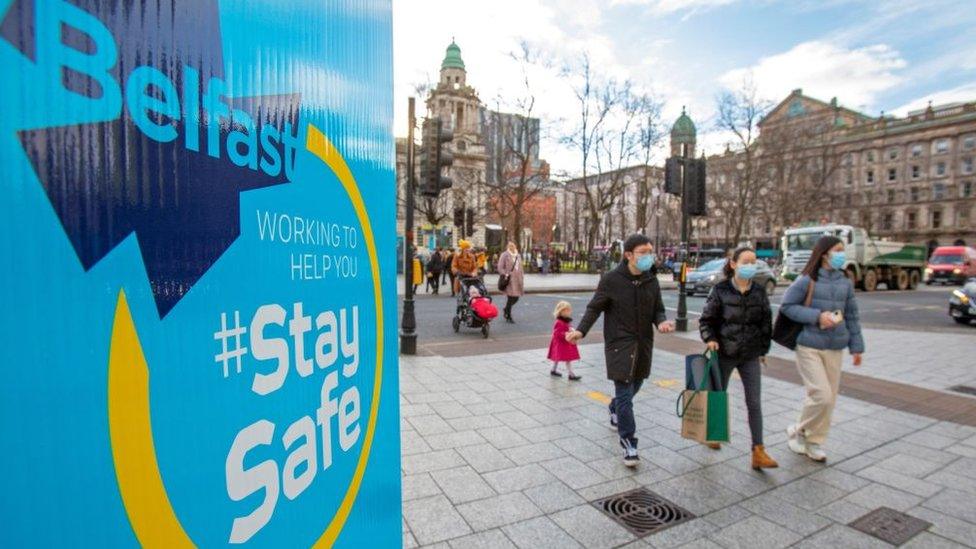
Christmas bubbles in Northern Ireland will be limited to one day, after Ministers decided on Sunday night to make changes to the rules.
There will be flexibility on which day between 23 and 27 December people can come together, to accommodate people who work on Christmas Day.
First minister Arlene Foster said people should take "personal responsibility".
Ministers have also discussed banning travel from England, Scotland and Wales to Northern Ireland, but nothing has been agreed.
A new lockdown is coming into force across Northern Ireland on 26 December and will last for six weeks.
Schools will close for the Christmas holidays and will reopen as normal in January
Non-essential shops will close but all essential services like banks and pharmacies will stay open
No sporting activity will be allowed at all during the first week of lockdown
Gyms, swimming pools, leisure centres, and all leisure and entertainment businesses will have to close again
Wedding, civil partnerships and funerals can continue to be held but are limited to 25 people, and no wedding receptions are allowed
Places of worship can continue to open subject to "strict conditions", for example wearing face coverings when entering and exiting
- Published25 January 2021
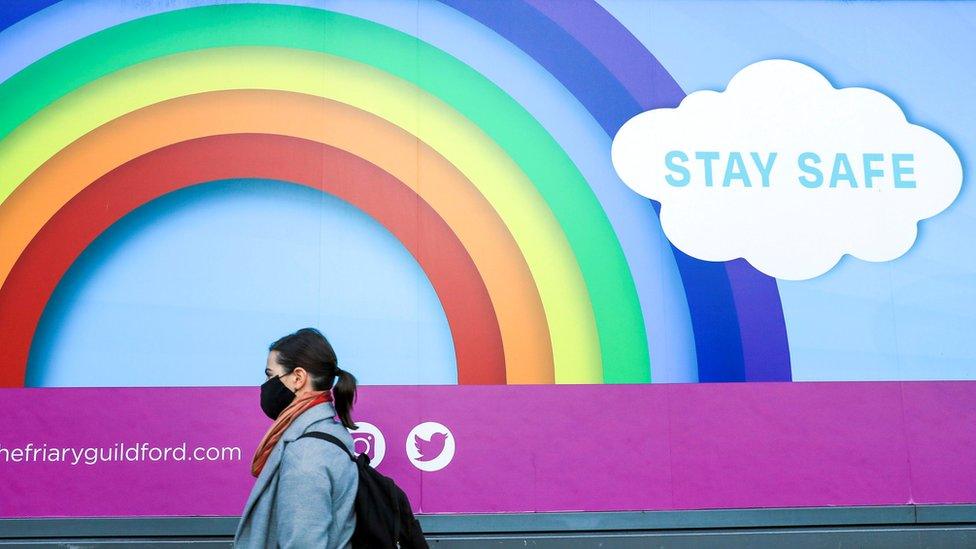
- Published20 December 2020
